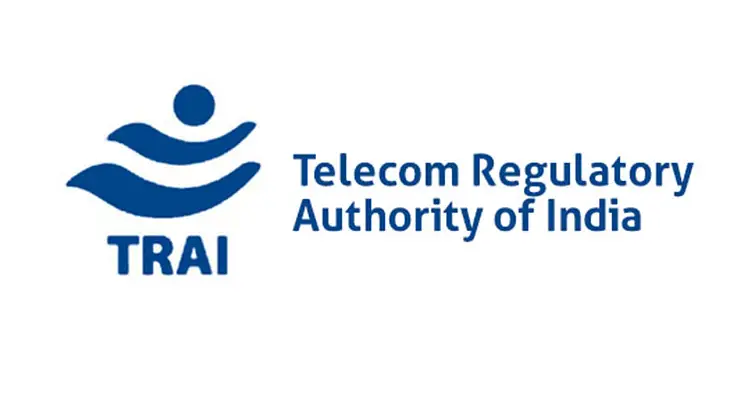In a landmark move set to reshape the Indian audio landscape, the Telecom Regulatory Authority of India (TRAI) has released its definitive recommendations on the Digital Radio Broadcast Policy for private broadcasters. The policy, titled “Formulating a Digital Radio Broadcast Policy for Private Radio Broadcasters,” mandates a phased rollout, spectrum auctions, and the adoption of a single national technology standard, opening up new avenues for broadcasters and promising a significant quality leap for listeners.
The recommendations, finalized after extensive consultation and an Open House Discussion in January 2025, outline a clear framework for the migration from analog FM to Digital Radio Broadcasting.
Digital radio services will commence in a simulcast mode, allowing for the simultaneous transmission of both analog and digital signals. This initial phase targets 13 major Indian cities:
- ‘A+’ Category (4 Cities): Delhi, Mumbai, Kolkata, and Chennai.
- ‘A’ Category (9 Cities): Hyderabad, Bengaluru, Ahmedabad, Surat, Pune, Jaipur, Lucknow, Kanpur, and Nagpur.
The core advantage of the simulcast mode is its enhanced capacity on a single frequency, enabling new entrants to broadcast one analog, three digital, and one data channel. Existing FM broadcasters are permitted to migrate to this system on a voluntary basis.
Frequency assignments for new digital radio channels will be made through auctions, in line with the Telecommunication Act, 2023. TRAI has set the reserve prices (spectrum base prices) for the initial cities:
Broadcasters opting to migrate will only pay the difference between the auction-determined price and the proportionate non-refundable entry fee balance for the remainder of their existing permission period.
Single National Technology Standard
A pivotal recommendation is the adoption of a single digital radio technology standard nationwide. TRAI emphasized that this uniformity is crucial to prevent market fragmentation, simplify infrastructure planning, and reduce costs for both receiver manufacturers and consumers. The government will be responsible for selecting the most suitable technology in consultation with industry stakeholders.
Authorisation and Revenue Fee Structure
- Authorisation Period: Digital radio services will be granted an authorisation period of 15 years.
- Annual Fee: Operators will pay an annual fee of 4% of Adjusted Gross Revenue (AGR).
- Concessional Fee: For broadcasters in border, hilly, and North-Eastern states, the fee is relaxed to 2% of AGR for the initial three years.
Operators are required to commence services within two years of acquiring the spectrum. The regulator has deferred the decision on a specific sunset date for analog FM, stating it should be fixed only after assessing the adoption rate of digital services.
To foster a robust ecosystem, TRAI has outlined measures to promote the adoption of digital receivers:
- Device Compatibility: TRAI urged the government to issue advisories mandating digital radio compatibility in mobile phones and car infotainment systems, similar to existing requirements for FM receivers.
- Live Streaming: Private terrestrial broadcasters are now permitted to stream their live terrestrial channels concurrently online, though without user-controlled functions like playback or download.
- Infrastructure Liberalisation: The recommendations allow for a new authorisation category for “Radio Broadcasting Infrastructure Providers” to lease infrastructure. Furthermore, TRAI encouraged Prasar Bharati to share its land, towers, and common transmission infrastructure with private broadcasters at concessional rates, only recovering operational expenses.
This policy marks a critical step toward the modernization of India’s audio broadcasting sector, positioning digital radio to compete effectively against the rapidly growing landscape of over 908 private satellite TV channels and over 70 OTT platforms, offering a richer experience to millions of Indian listeners.
Key Highlights:
- Digital Radio Policy Unveiled: TRAI has released its roadmap for private digital radio in India, mandating a phased launch in a simulcast mode across 13 major cities (4 ‘A+’ and 9 ‘A’ categories).
- Single Standard and Auctions: The policy requires a single digital radio technology standard for the country and proposes frequency allocation via auctions, setting initial reserve prices (e.g., Mumbai at ₹194.08 Cr and Delhi at ₹177.63 Cr).
- Simulcast Benefits: The new framework allows new broadcasters to transmit one analog, three digital, and one data channel on a single frequency, offering superior audio quality and diverse content.
- Licensing and Ecosystem Support: Services will be authorized for 15 years with a fee of 4% of AGR (2% for hilly areas initially). TRAI also called for mandatory digital radio compatibility in mobile and car systems and infrastructure sharing with Prasar Bharati.

